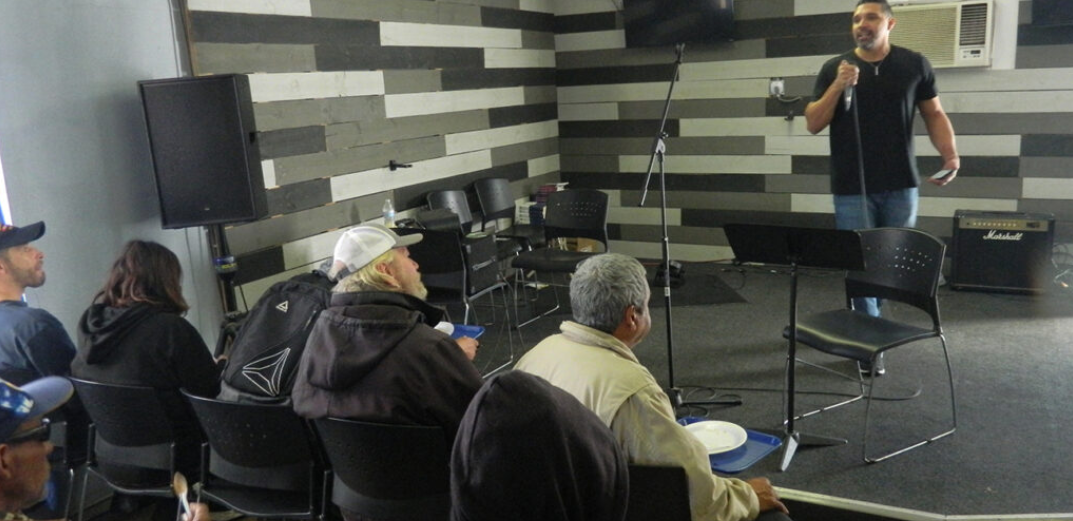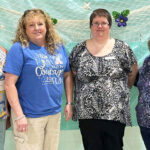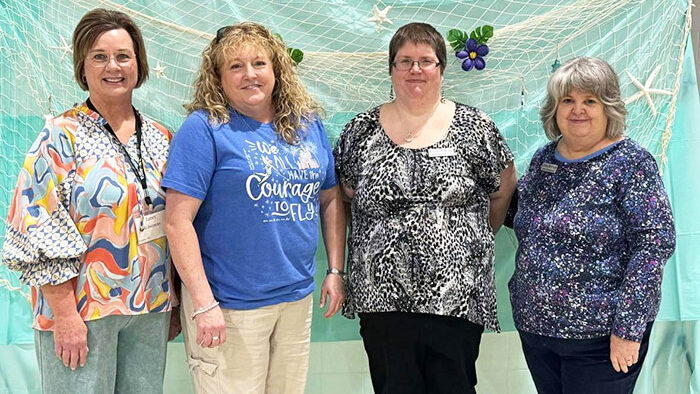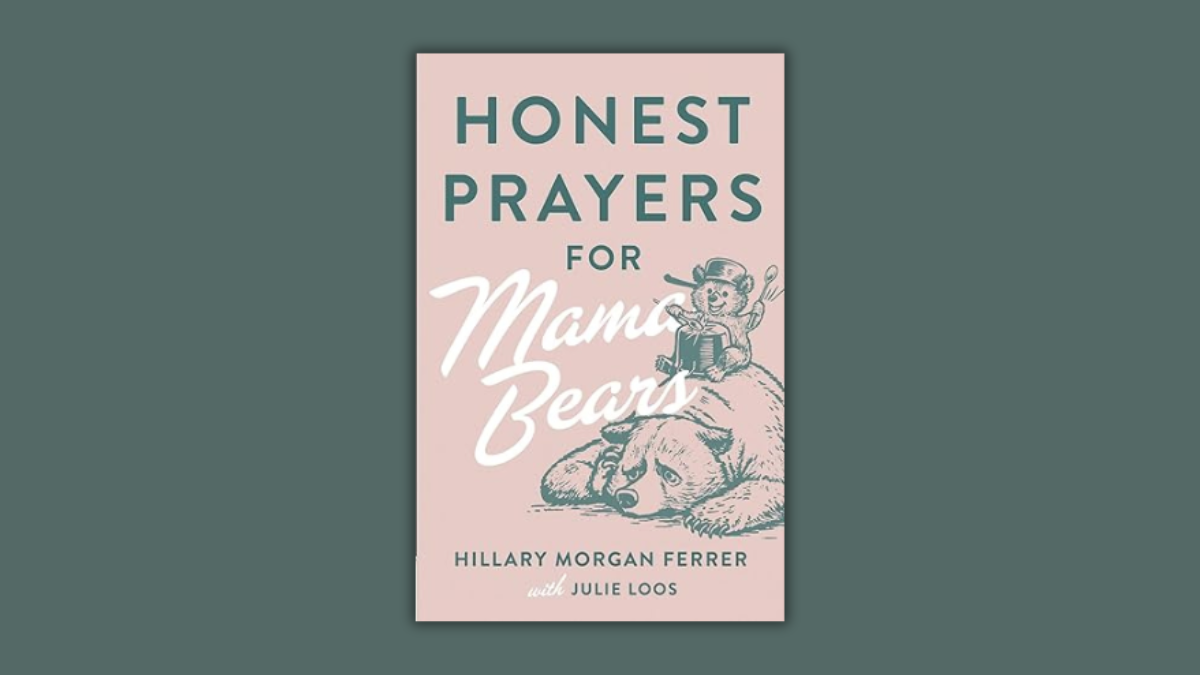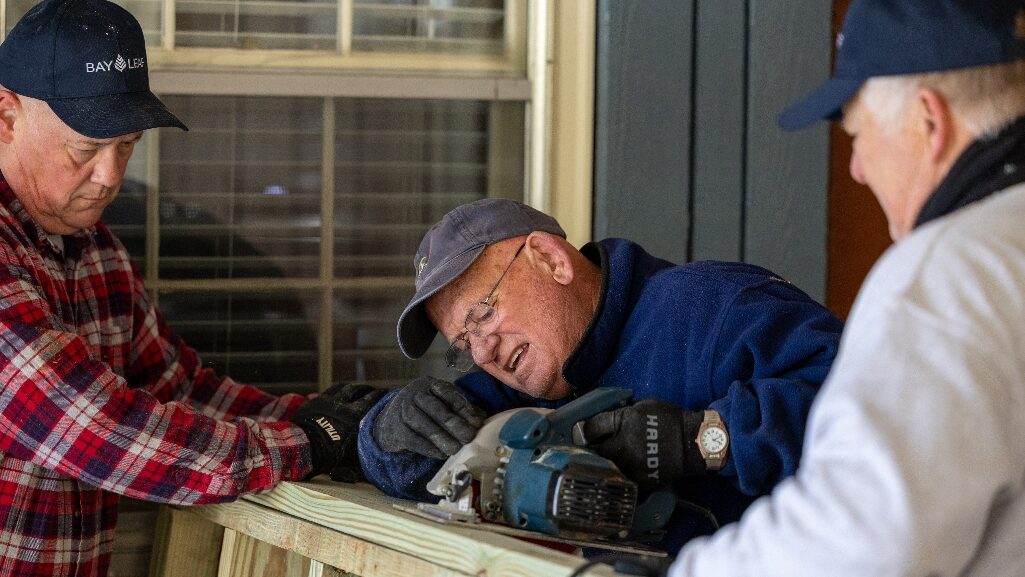Life Restored Church made radical adjustments to focus on San Antonio’s poorest residents, for one simple reason — Pastor Alex Fleming believes God told him to.
Fleming already felt a calling to minister to people in poverty. The median household income is less than $23,000 in the 78207 ZIP Code on San Antonio’s West Side, where Life Restored Church’s building is located near railroad tracks.
But one Sunday morning about eight years ago — after learning a homeless person had frozen to death near the church — Fleming sensed God had a more specific mission field in mind.
“I was making the morning announcements when I heard the Holy Spirit say, ‘You are going to take in the homeless today,’” Fleming recounted.
Where do we start?
He said he felt overwhelmed and didn’t know where to start. After all, some 2,000 homeless live on the streets within a two-mile radius of the church.
“When I told the congregation, I could see the looks of concern,” he recalled.
Subsequently, Fleming went outside the church to film a video for social media, in which he removed his shirt.
“I did the ‘take-off-your-shirt challenge,’” he explained. “I said to other pastors, ‘If you can’t take off your shirt in the cold for 30 seconds, imagine what it is like for people who are spending all night on the streets. So either come help us take in the homeless, or open up your own church tonight.’”
The post attracted local media attention, and news reports prompted San Antonio residents to drop off coats, blankets and sleeping bags at the church.
Opening their doors
The first night Life Restored Church opened its doors, 40 homeless individuals slept in the facility.
“Some people who saw the video on Facebook said, ‘Man, what a great marketing strategy.’ And I had to tell them there was no strategy. I just did what God told me to do,” Fleming said.
Crossroads Baptist Church in San Antonio was one of Life Restored Church’s earliest ministry partners. Volunteers from Crossroads continue to serve the homeless every week, cooking pancakes for about 100 people every Thursday morning.
Since they began, Ron Purcell — who leads Crossroads’ ministry to the unhoused — estimates volunteers from his congregation have served about 25,000 meals.
Other churches help Life Restored Church serve breakfast to unhoused people each Tuesday and Saturday, and some local restaurants donate food.
‘It was a rough area’
Purcell recalled helping the struggling congregation make repairs to its building.
“The first time we came here you could see sunlight through the ceiling,” he recalled. “We’d been here working on the building two days when we found a guy dead in the gutter from an overdose. There was a crack house just down the road then. … It was a rough area.”
Initially, Purcell and other volunteers cultivated a good relationship with neighbors, visiting elderly residents and helping make basic home repairs.
But when the homeowners died and their children took over the property, some of them opposed Life Restored Church’s ministry to the homeless population.
“They actually threatened us with guns,” Fleming said, noting they also repeatedly reported the church to the city for code violations. “They told all kinds of lies about us. They even accused us of running a brothel here.”
Local media again picked up the story about a struggling ministry trying to help an underserved population and meeting with resistance from city agencies.
“Somebody told me, ‘Your adversaries become your advertisement.’ And that’s what happened,” Fleming said.
The publicity sparked donations from throughout the city, and citizens made their concerns known to elected officials, some of whom advocated on behalf of Life Restored Church and helped make it easier to work through the system to be code compliant.
In recent years the ministry has “pivoted,” Fleming said. Initially, he envisioned a congregation where unhoused individuals and local residents would worship together.
In the short-term, that model worked. But over time the distractions that often accompany ministry to the homeless became too great for members of the established church and they left.
‘A church of churches’
“Now we are a church of churches,” Fleming said. “We provide a base where churches can serve.”
Three mornings a week Life Restored Church opens its doors to ministry partners from other congregations who serve meals to the unhoused and lead times of worship and Bible study.
“It would be a great training ground for young preachers,” Fleming noted. “If you can preach to the homeless and keep their attention, you can preach anywhere.”
John Anaya, who has known Fleming since they were teenagers, runs day-to-day operations at Life Restored Church and is committed to its mission to the unhoused.
“It’s an obedience issue for me — obedience to the Lord and His calling on my life,” Anaya said. “And it’s a matter of love — love for the Lord, love for seeing people set free and delivered, and love for being around God’s people when they are doing God’s work.”
Life Restored Church temporarily has discontinued offering overnight lodging due to a lack of volunteers.
‘Turn the hearts of pastors back to the poor’
However, Fleming was instrumental in organizing a coalition of churches that offer unhoused people a place to sleep on exceptionally cold winter nights, such as during the ice storm that hit south central Texas in early January.
“I want to restore the hearts of pastors back to the poor,” Fleming declared.
With all its challenges, ministry to the poorest of the poor has its rewarding moments, Fleming noted.
Recently, a well-dressed man in a new truck pulled up. He explained he had been helped by the church when he was homeless, and God turned his life around. He pulled out an envelope with $300 in cash, saying he wanted to give back to a ministry that helped him when he needed it.
“People don’t come back when you treat them like cattle, running them through as quick as you can,” Fleming asserted. “They come back when they are treated like they are made in the image of God and shown dignity by the Body of Christ — the children of God.”
Encounters with formerly homeless people whose lives have been transformed by God provide motivation for continued ministry, and Fleming sees them as divine encouragement to keep serving.
“One lady who used to be homeless came back to see us,” Fleming remembered. “She said: ‘I used to go to church here. I would eat the pancakes and hear the messages. That helped me move on and get to the next chapter in my life.’
“Sometimes, it’s easy to wonder if it is making a difference. We don’t always know what happens to everybody. But once in a while, when we’re able to see lives restored, I get those kisses on the forehead from God.”
EDITOR’S NOTE — This story was written by Ken Camp and originally published by Baptist Standard.

